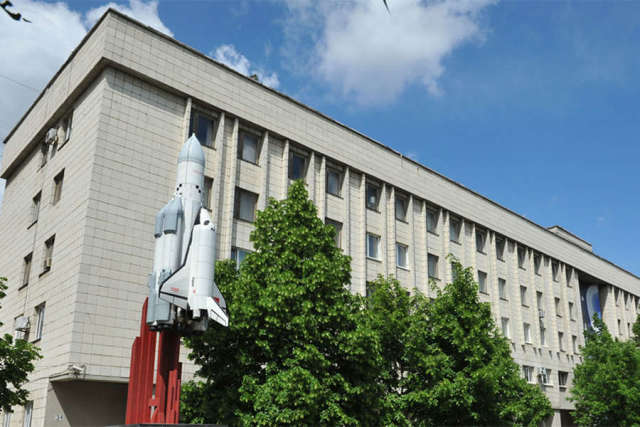Roscosmos told which universities train students in space specialties
Roscosmos has identified a list of 18 reference universities and united them into a consortium that will produce specialists for the Russian rocket and space industry. Where in Russia do they train engine engineers, where do they train specialists in aircraft control, and from which university most graduates come to the industry, "Gazeta.Ru" said Vladimir Matveychuk, Director of the Department of Personnel and Social Policy of Roscosmos.
- 18 universities have been identified that are part of the consortium on which the rocket and space industry will rely. What is this association for?
- The universities invited to the consortium have been our educational partners for many years and provide training of highly qualified personnel for the industry. They all have specialized educational programs, according to which our target students study, as this was one of the key criteria for evaluating universities.
The question was rather to what extent the content of these educational programs meets the high requirements imposed by the high-tech rocket and space industry.
The consortium will allow educational organizations to improve the content of educational programs (for example, through the procedure of professional and public accreditation, the formation of engineering teams, solving problems within the framework of research and development), and in close integration with industry enterprises to implement new interesting projects.
- What are the top five universities considered by Roscosmos to be the strongest?
- Educational organizations invited to the consortium were selected according to the degree of their involvement in solving various tasks of the rocket and space industry.
To a certain extent, we can say that all universities invited to the consortium are leaders in training personnel for our industry.
- Are "space" specialties distributed among universities? Was Roscosmos engaged in this work, or were the training programs formed by the universities themselves?
- Traditionally, educational organizations have formed a list of implemented specialties with an eye to industry enterprises, this is most clearly noticeable in regional universities. So, for example, the SamNIU named after Academician S.P. Korolev implements specialties in the interests of the Progress RCC - "Rocket complexes and cosmonautics", "Aircraft Engines", "Design, production and operation of rockets and rocket and space complexes", "Design of aircraft and rocket engines".
The specialties necessary for the ISS named after Academician M.F. Reshetnev are implemented at the SibGU named after Academician M.F. Reshetnev - these are "Aircraft control systems", etc.
In general, among the "space" specialties, one can distinguish, for example, not only "Design, production and operation of rockets and rocket and space complexes", but also "Design and technological support of machine-building industries", "Radio-electronic systems and complexes", "Mechanical Engineering", "Computer Science and Computer Engineering", "Rocket complexes and cosmonautics", "Radio Engineering", "Software engineering" and many others.
- Are there statistics showing whose graduates most often work at Roscosmos enterprises?
- How many budget places in total for all 18 universities are planned for next year in "space" specialties for "space" faculties? How many paid?
- In general, it is expected that in the interests of organizations of the rocket and space industry, educational organizations will be provided with about 1,000 targeted budget places this year, for which the most high-potential applicants will be accepted.
Targeted training can be of two types. When an applicant has signed an agreement on targeted training and is studying at the expense of the budget (the so-called admission control figures), and when students enrolled on a budget or paid tuition enter into an agreement on targeted training - in the process of studying.
Both in the first and in the second case, target students will be maximally integrated into industry tasks and activities and will be able to receive an incomparably higher level of training during the training process.
- What are the rarest "space specialties" there are? In which of the universities can you become such a specialist?
- As such, there are no rare specialties in educational organizations, but there are profiles within the framework of ordinary specialties that are relevant specifically for the rocket and space industry. So, a classic example is the specialty "Aircraft Engines", within the framework of which the profile "Rocket engines and propulsion systems of spacecraft" is being implemented, training in which is conducted at the SamNIU named after Academician S.P. Korolev in the interests of the RCC "Progress".
There is also a position in our industry - "Cosmonaut", and a special selection of candidates for it takes place according to a number of criteria: age, knowledge of languages, knowledge of the history of manned cosmonautics, good health, and most importantly - engineering education in specialties relevant to the industry (for example, aviation and rocket and space technology, computer science, electronics, radio engineering and communication systems, mechanical engineering, physics, astronomy, etc.), as well as work experience of at least three years.
Thus, a huge number of different specialties and training profiles find their application in the rocket and space industry.
Everyone who has a desire for mathematical, computer and engineering sciences can prove themselves in the rocket and space industry and leave their mark in the history of cosmonautics!
Anna Urmantseva

